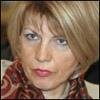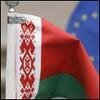Другие материалы рубрики «English»
-
 Human rights groups condemn European Olympic Committees for “sportswashing” human rights abuses in Azerbaijan
Human rights groups condemn European Olympic Committees for “sportswashing” human rights abuses in Azerbaijan
The coalition also condemns EOC President Patrick Hickey for praising the Azerbaijani leader, Ilham Aliyev. -
 Kobryn-based opposition activist Ales Mekh launches presidential bid
Kobryn-based opposition activist Ales Mekh launches presidential bid
Apart from Mr. Mekh, six persons have already announced their intention to run in this year’s presidential election...
- Quarter of adult Belarusians are smokers, official statisticians say
- Experts draw up media reform “roadmap” in framework of Reforum projec
- Leader of Belarusian Popular Front skeptical about new Nyaklyayew-led movement
- Authorities have no plans for liberalization, Belarusian Popular Front leader says
- Second session of pro-independence congress expected to be held in Minsk on June 7
- Rescuers stage massive exercise at sports center in Minsk
- Revelers in Minsk celebrate end of Butter Week
- Leaders of France, Germany, Russia, Ukraine arrive in Minsk for summit on Ukraine crisis
- United Kingdom’s Visa Application Center in Minsk moves into permanent office
- Minsk residents paying tribute to victims of Charlie Hebdo massacre in Paris
English
EU may impose travel ban on 158 Belarusian officials and other individuals
The European Union may impose a travel ban on 158 Belarusian government officials and other individuals on January 31 over the rigged presidential election and the post-election crackdown on the opponents of the Belarusian government, the Brussels-based online newspaper EUobserver said on January 28.

At their meeting on January 31, the foreign ministers of EU countries are expected to renew the travel ban on 41 government officials, including Alyaksandr Lukashenka, which was suspended in October 2008, and add 117 new names to the travel ban list, the newspaper said.
Among the new individuals to be declared persona non grata in the EU are the two adult sons of Mr. Lukashenka, Viktar and Dzmitry; Uladzimir Makey, head of the Presidential Administration; Uladzimir Andreychanka, chairman of the House of Representatives; Vadzim Zaytsaw, chief of the Committee for State Security (KGB); Prosecutor General Ryhor Vasilevich; Defense Minister Yury Zhadobin; Leanid Maltsaw, state secretary of the Security Council; 24 heads of election commissions of various levels; 30 judges; and 10 journalists dubbed "Lukashenka propagandists," EUobserver said.
Foreign Minister Syarhey Martynaw and First Deputy Prime Minister Uladzimir Syamashka, are not on the list.
Mr. Martynov is not to be included because the EU "should keep at least one channel of communication,” the newspaper quoted an unnamed EU diplomat as saying. "Among the bad guys in Belarus, he's not the worst bad guy."
Mr. Syamashka is seen by some in the EU as a potential successor to Mr. Lukashenka, EUobserver said.
On January 21, the EU foreign ministers will also decide what type of economic sanctions to impose on Belarus, the newspaper said. "The toughest option on the table is to ban trading with petroleum products company Belneftekhim [Belnaftakhim] and fertilizer firm Belaruskali," EUobserver said. "The two companies account for a massive chunk of the state budget and are among the few Belarusian businesses whose main client base is not in Russia."
Another option under consideration is to block the aid of the International Monetary Fund, the European Investment Bank and the European Bank for Reconstruction and Development to the "impoverished country," EUobserver said.
A senior EU official told reporters in Brussels on Friday that some EU countries were concerned about the potential "unforeseeable consequences" of sanctions for European companies and for common citizens of Belarus, the newspaper said.
According to it, the source noted that the EU had waited for over a month before taking action to give Minsk a chance to free political prisoners. "We hoped the threat of these measures would have some implications for the release of those prisoners, as it hasn't happened, we're going forward," the official was quoted as saying.
The EU's visa ban efforts against Belarus have in the past faltered due to language problems, EUobserver said.
"Belarus has two main languages, Belarusian and Russian, both of which can be transliterated in various ways from Cyrillic into the Latin alphabet used in EU documents," the newspaper said. "When the EU last imposed sanctions in 2006, it had to go back and re-spell some of the names because they did not pop up in airport computers due to variant spellings."
Well-connected people from the post-Soviet region often use dirty tricks to evade visa bans, EUobserver noted.
The 158 people on the travel ban list will also "have their financial assets in the EU frozen," the newspaper said. "The move will be largely symbolic unless the EU launches a forensic accounting operation to find out where the money is."




В настоящее время комментариев к этому материалу нет.
Вы можете стать первым, разместив свой комментарий в форме слева